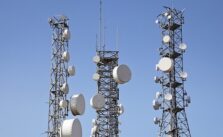The Nigerian Communications Commission (NCC) has granted approval for a 50% increase in telecom tariffs, marking the first adjustment in over a decade. The move comes after months of agitation by network operators struggling with escalating operational costs in Nigeria’s challenging economic climate.
This decision, announced on Monday in a statement by the NCC’s Director of Public Affairs, Reuben Muoka, permits a maximum tariff increase of 50%, a figure significantly lower than the over 100% hike some telecom companies had originally proposed.
Telecom operators have been vocal about the financial strain imposed by soaring inflation, energy costs, and foreign exchange challenges. Since the removal of fuel subsidies in 2023 and the subsequent devaluation of the naira, the cost of maintaining network infrastructure has surged. Operators have faced rising expenses for diesel to power base stations, increased import costs for equipment, and higher wages to retain talent.
By late 2024, major players such as MTN, Airtel, and Glo had lobbied the NCC to approve tariff increases, citing fears of network degradation and potential service disruptions if their financial challenges persisted. The operators argued that the existing tariff structure, last reviewed in 2013, was no longer sustainable in light of current economic realities.
Read also: Labour minister advocates for increased budget to enhance job creation initiatives
Despite these concerns, the NCC had been reluctant to approve the requested adjustments, wary of the impact on consumers already grappling with a high cost of living. However, after extensive consultations, the commission settled on a compromise—allowing a 50% hike, effective January 10, 2025.
The NCC emphasized that the approved adjustment was a necessary measure to balance the interests of both operators and consumers.
“While we recognize the need to address the operational challenges faced by service providers, we remain committed to ensuring affordable and accessible telecom services for Nigerians,” the statement read. “The approved adjustment is a moderated increase to mitigate the potential impact on subscribers.”
Telecom companies have welcomed the decision as a step in the right direction, although some express concerns that the approved 50% increase may not fully offset their operational challenges. A senior executive at one of the leading operators, speaking anonymously, noted, “We appreciate the NCC’s recognition of our challenges, but we hope for further engagement to ensure the industry’s long-term sustainability.”
Meanwhile, consumer advocacy groups have criticized the move, warning that the tariff hike will exacerbate financial pressures on households and businesses.
As of January 10, 2025, subscribers have begun experiencing the adjusted tariffs across voice calls, SMS, and data services. For instance, the cost of a minute-long call previously priced at N12 has increased to N18, while the price for 1GB of data has risen from N500 to N750.
While the tariff hike aims to stabilize Nigeria’s telecom industry, it underscores the broader economic challenges facing the country. The NCC’s decision is expected to prompt further discussions on how to balance service affordability with industry sustainability in the years to come.

